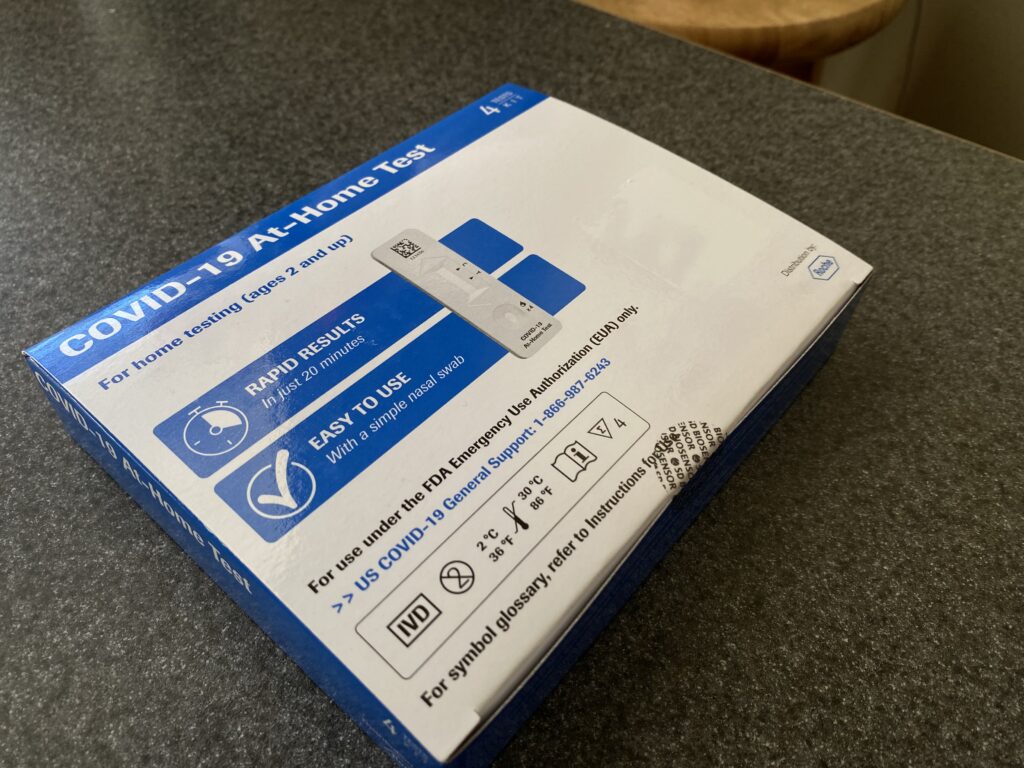COVID-19 home antigen tests surged in popularity during the omicron surge, quickly becoming sold out in nearly every store and pharmacy nationwide. Following the hysteria, The White House subsequently announced a mass distribution of COVID-19 antigen tests to American households across the country.
COVID-19 antigen home tests are convenient due to their ease of use and quick result – but their statistical accuracy has been questioned, particularly with the omicron variant.
Dr. Eric Heine, Medical Director of Health Services at the University of West Georgia, says that false negatives are more common in rapid home antigen tests in comparison to polymerase chain reaction (PCR) tests .
“They [home tests] can be less sensitive than the gold-standard PCR tests because the antigen tests rely on enough of the viral particles being in the sample to be detected,” said Dr. Heine. “It is more common to get false negatives early or late in the course of the illness, since those are times when there are fewer viral particles in the nose.”
This is not a reason to discount home testing, however. Dr. Heine says that these false positives happen relatively infrequently, and there are many advantages to home antigen tests. This includes wide availability, the convenience of not having to see a provider, cost effectiveness and the speed of the test result.
The timing of the test in relation during the disease progression (very early or very late during the infective process) often affects accuracy with antigen tests. If using a home antigen test, it is important to know at what point during the course of infection to test in order to receive an accurate reading.
“False positives are possible and can be related to performing the test incorrectly, cross contamination of samples, or a faulty batch from the manufacturer, to name a few reasons,” said Dr. Heine. “Also, even if a test is fairly specific, if the general prevalence of an illness is low in the population you are testing, you will have a higher percentage of false positives. During a COVID surge, however, the prevalence is high, and thus (as a percentage of tests), there are far fewer false positives.”
When used correctly, Antigen tests are very effective at determining the presence of an infection. If you develop symptoms of an infection and decide to test on the first day you become symptomatic, it may not be a bad idea to retest a day or two later.
“I usually caution my patients that if they test on the first day of symptoms and the test is negative, to retest the next day to make sure,” said Dr. Heine. “If you initially test positive, then getting a subsequent negative test does not prove you are no longer contagious, but that the amount of virus is probably less. However, it is also true that you could still test positive and no longer be contagious. That is why the CDC uses time-based criteria to determine when isolation ends.”
No matter whether you use at home antigen tests or PCR tests, the important thing is to get tested if you are experiencing symptoms. UWG Health Services provides tests, COVID-19 vaccinations, and booster shots to all students, faculty, and staff.
You may also like
-
UWG Offers Ways to Help Students Deal With the Stress of Upcoming Finals
-
Garden Club Branches Out to Grow Community
-
Breaking the Stigma: UWG’s Men’s Mental Health Panel
-
Prevention and Advocacy Center Spread Awareness in April and Offer Aid Year Round for Sexual Assault Victims
-
UWG Counseling Center Can Help You More Than You Think
